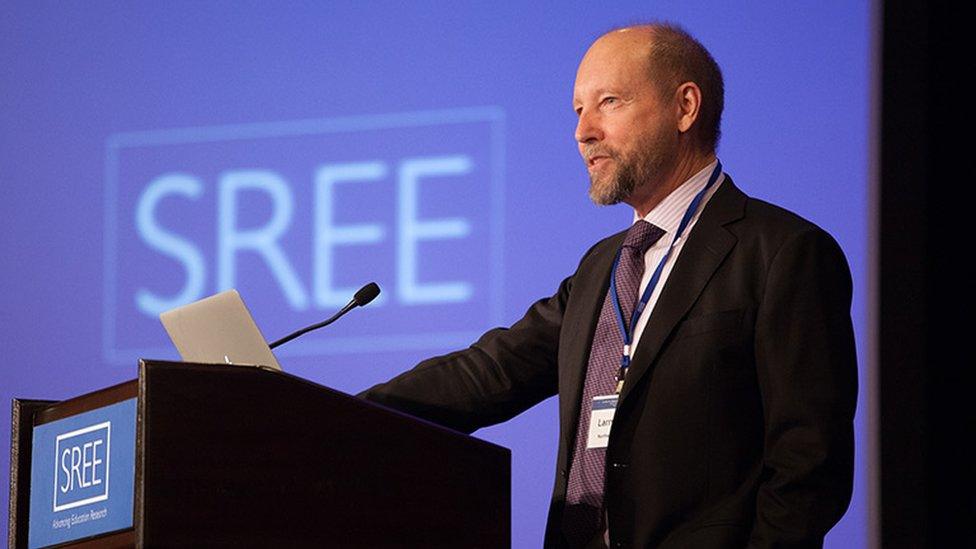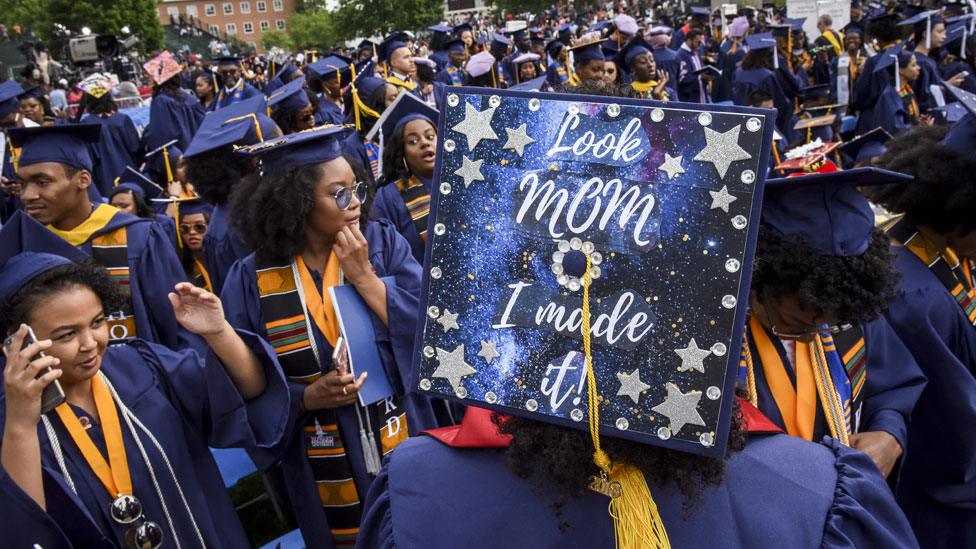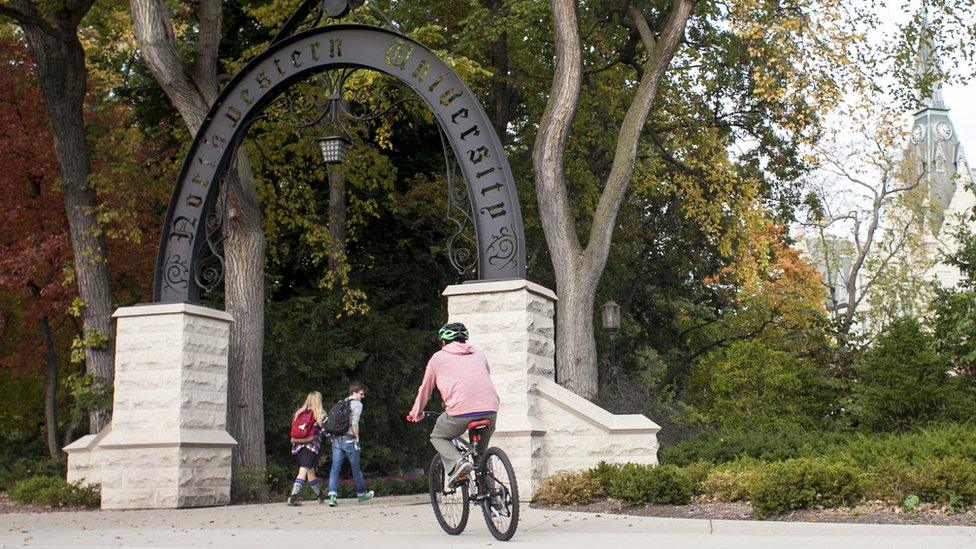University 'not for people like us'
- Published

Is social mobility through education getting easier or more difficult for today's young people?
Going to university was not on the cards for "people like us", says a US academic who next month will receive a major education prize.
Growing up in a poor family in California, Professor Larry Hedges thought university was something that was out of reach for people from his background.
In fact, it was only after stumbling into a university chemistry lab as a young child - while his mum washed dishes in the campus canteen - that Prof Hedges realised the opportunities a degree could bring.
Fast-forward half a lifetime, and that young boy is now a leading academic, chairman of the department of statistics and professor of education at Northwestern University, Illinois.
At a ceremony in Hong Kong, Prof Hedges will receive this year's Yidan Prize for education research, worth $3.9m (£3m), with half awarded as a cash prize and the rest to support his research into studying what really works in improving education.
Being the first in his family to go to university was "life-changing", says Prof Hedges.
He is "passionate" about others getting similar opportunities, but he says it's a "hard question to answer" whether today's youngsters have the same chance of social mobility.
Doors still open?
"I think that there's still plenty of opportunity, but I'm not so sure that it's better than it was 30 years ago," he says.
As a child, when he spoke about going to university his mother would say: "Well, that's a good ambition but I'm not sure people like us can do that."

Prof Hedges has won a major prize for his work in education research
"When she talked about that, there was a consciousness of social class in her mind," he says.
He believes she was trying to spare him from "getting slapped down for trying to step out of my place".
The turning point was wandering around a college campus as his mother washed "pots and pans" in the cafeteria.
He walked through an open door into a chemistry lab and met a graduate student.
This was the first time in his life, Prof Hedges says, that he had "a concrete idea of what it would be like to be a scientist, or to work in a university".
Reaching out
A good student, in 1970, at age 18, he won a prestigious Regents Scholarship to study mathematics and physics at the University of California at San Diego.
A stint working on improving opportunities for disadvantaged students at the university followed, where he first discovered the field of education research.

It is unlikely that disadvantaged students today would be exposed to the potential of a college education in the same way, he acknowledges.
But there are efforts to reach these youngsters.
"I think that things have changed a lot, and probably it would be harder to walk into that lab because there are probably now many more safety restrictions.
"On the other hand there are, at least in the US, more efforts to extend the reach of the university to places where university is unfamiliar."
'Keys to opportunity'
At Northwestern there is an initiative which recruits 14 and 15 year olds from Chicago state schools with the aim of preparing and encouraging them to apply to US elite universities.
"One of the things that makes me happiest is that the universities themselves have been agents of change," he says.

Northwestern University encourages applications from state schools in Chicago
"Rather than sitting in their own ivory towers and lamenting the fact that not many disadvantaged students seem to come to their university, most universities are trying to do things to reach out to those communities - and not just encourage people to come, but make it more likely that they'll be able to come."
Many top US universities offer generous financial aid to students who would otherwise be unable to afford to attend, Prof Hedges says, although perception of cost is still a challenge.
Would-be students also need the "knowledge not only that going to college is a good thing, but that it makes a difference which college you go to".
Prof Hedges says that while to some, "going to the community college down the street may seem appealing", attending a top university can give people "a whole different range of opportunities".
"For better or worse, the most elite universities are the keys to the most opportunity, at least in the US."
Prof Hedges says the long term "holy grail" is to figure out how to organise the education system and teach children so that they all excel at a high level.
"You can teach almost any child almost anything that the best students know, or are able to do.
"We know that it's possible to achieve excellence for all, we just don't know how to make it happen," he says.

More from Global education
The editor of Global education is Sean Coughlan (sean.coughlan@bbc.co.uk).